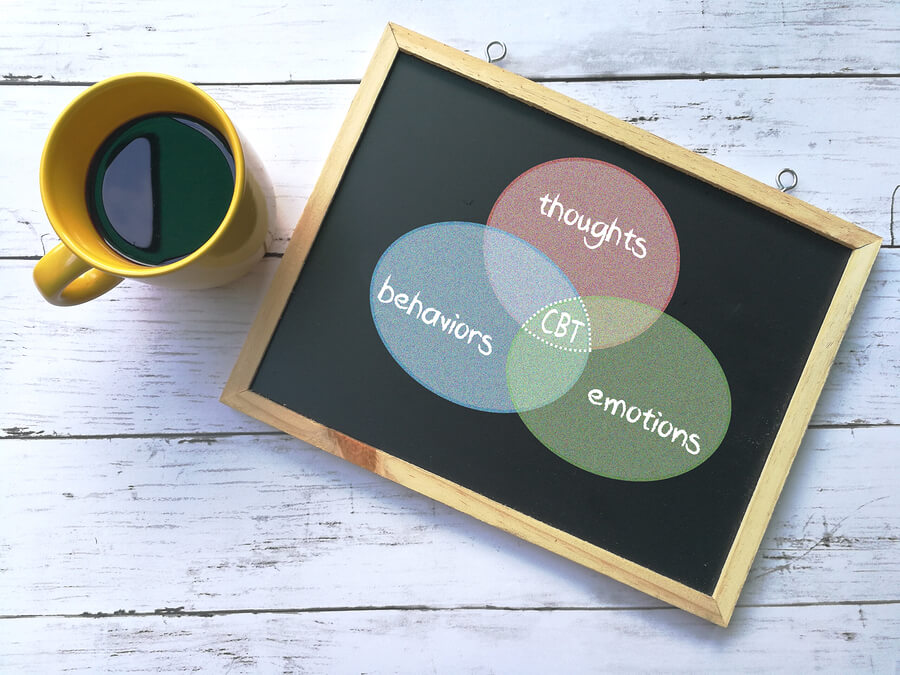
Obsessive compulsive disorder (OCD) is an anxiety disorder characterized by recurring thoughts that induce irrational fears and anxiety. People with OCD repeated engage in compulsive behaviors and rituals such as counting items, excessive hand washing, or organizing.
Executing these behaviors offers temporary relief while they are being performed, but anxiety returns soon after they are suspended. OCD is a highly disruptive disorder that can overwhelm an individual’s life and prevent him or her from enjoying many of life’s potentially more rewarding activities.
An estimated 25% of those who seek treatment for OCD also meet the criteria for a substance use disorder. People who encounter OCD symptoms during childhood or adolescence are more likely to develop a substance abuse problem, often as a way to deal with intense anxiety and fear.
Facts About Obsessive-Compulsive Disorder
OCD impacts about 2.2 million men and women in the United States. The disorder appears to have a genetic or hereditary component, as it occurs more frequently among families.
OCD is frequently the subject of humor or fascination in the media, but, in reality, those who live with OCD suffer from intense anxiety and internal torment over their irrational and uncontrollable thoughts. These intrusive thoughts can put a strain on relationships and interrupt a person’s academic progress, career, and social development. For these individuals, it may feel at times that intoxication is the only way to escape these tenacious, highly uncomfortable thoughts, albeit temporarily.
Individuals with OCD are usually aware that their fears are not logical, but knowing this does not help them control their need to perform compulsive behaviors to relieve their anxiety and those fears. Engaging in repetitive rituals such as excessive hand washing, checking locks or cleaning one’s personal environment can consume so much time that they begin to interfere with other daily activities.
The fears and rituals related to OCD vary from one individual to another, but some of the most common anxieties among adults or children with OCD are associated with the following:
- A fear of being exposed to viruses or bacteria
- An obsession with certain numbers that are considered either “good” or “bad”
- A preoccupation with religious subjects
- A fear of becoming ill or of losing a loved one to illness or injury
- Intrusive images of sexual acts
- Intrusive thoughts of harming oneself or others
Rituals that involve excessive grooming, cleaning, counting, and organizing are among the most common behaviors experienced by people with OCD. Some of these individuals fear that if they don’t carry out their obsessive rituals, they or someone they care about will be harmed. Regardless of whether these fears have any basis in reality, which they often do not, they require an enormous amount of mental and physical energy to be exerted by the person they are tormenting.

OCD and Substance Abuse
OCD is one of several mental health conditions that is categorized as an anxiety disorder. Approximately 20% of the people who have an anxiety disorder also have some type of substance use disorder. Unfortunately, the use of drugs or alcohol often make symptoms worse and ultimately compounds the problems related to OCD.
OCD combined with a drug or alcohol addiction is a very unhealthy mix. Those who struggle with OCD experience high levels of fear and anxiety in their everyday lives. In order to deal with this anxiety, many resort to the use of intoxicating substances as a means of escape. And an individual who suffers from obsessive-compulsive disorder symptoms may be more likely than others to see their alcohol or drug abuse habits progress into chemical dependence or full-blown addiction.
Furthermore, addiction itself is a compulsive condition, hallmarked by the repetitive pursuit of a destructive substance or behavior despite the incurrence of adverse consequences. Many experts believe that some of the risk factors that contribute to mental health disorders such as OCD also increase the likelihood that a person will engage in substance abuse and potentially develop an addiction.
Obstacles and Opportunities in Treatment
Treating OCD as a co-existing disorder presents a lot of challenges, but it also offers invaluable life-changing opportunities. Entering a treatment program can be frightening because it exhibits unknown factors that characterize what some may consider an uncontrollable environment. Also, intrusive thoughts and time-consuming rituals can make it challenging to concentrate on individual therapy sessions or peer group meetings.
Fortunately, specialized treatment programs that address mental health issues concurrently are able to accommodate the needs of sufferers and their symptoms, making it easier for these individuals to complete rehabilitation requirements. Medication such as antidepressants and behavioral modification therapies are the most common tools used to treat anxiety disorders such as OCD.
Cognitive-behavioral therapy (CBT) is a psychotherapeutic approach that focuses on teaching the client how to identify and alter unhealthy behaviors. In the case of OCD, therapists may encourage the client to expose him or herself to the object or situation that induces fear without conducting any anxiety-relieving rituals. The ultimate objective is to reduce and eventually eliminate the irrational fear and anxiety associated with specific objects or circumstances.

Identifying the Warning Signs
Secrecy is often critical to those who suffer from OCD and for this reason, getting treatment for the disorder may be more difficult. People with OCD are masters at keeping their disorder concealed, and therefore, loved ones may be unable to identify the problem and assist in the process of getting help. Often, by the time the person suffering does seek out professional treatment, the illness is quite advanced, and the feelings and habits associated with it have become deeply ingrained.
When a person with OCD begins to abuse drugs or alcohol, they tend to keep their substance abuse as secret as possible, as well. Therefore, by the time loved ones realize the extent of either of these problems, both disorders may be in a very advanced state.
The following are warning signs that may indicate a person is engaging in substance abuse:
- A loss of interest in activities and hobbies that were once considered enjoyable
- Change in a social group or neglecting old friendships in favor of new ones which may appear to be less healthy
- Social withdrawal and spending more time alone than usual
- Responding to questions about suspected behavior in a way that is defensive and hostile
- Excessive moodiness, agitation
- Suddenly staying out late at night and sleeping in late the next day
- Stealing money or prescription medications
- Hiding alcohol or drug paraphernalia (e.g., needles, empty pill bottles, etc.) in drawers, closets, or backpacks
Treatment for Substance Abuse and OCD
When mental illness and a substance use disorder co-exist, this is referred to as a dual diagnosis. These patients must receive specialized care administered by health and addiction professionals who understand how these conditions overlap and interact with one another, and compound each other.
The longer these problems remain ignored, the more serious the situation is likely to become. Treating an addiction without addressing the psychological and emotional symptoms of OCD is rarely effective.
Midwood Addiction Treatment offers an integrated approach that includes treatment for substance abuse as well as co-existing mental health conditions such as OCD. We employ evidence-based services vital to the recovery process, including psychotherapy, counseling, and group support.
If you or someone you love is struggling with substance abuse and co-occurring mental illness, contact us as soon as possible to discuss treatment options. Discover how we help people free themselves from the grip of addiction and begin to lead happier, more fulfilling lives!